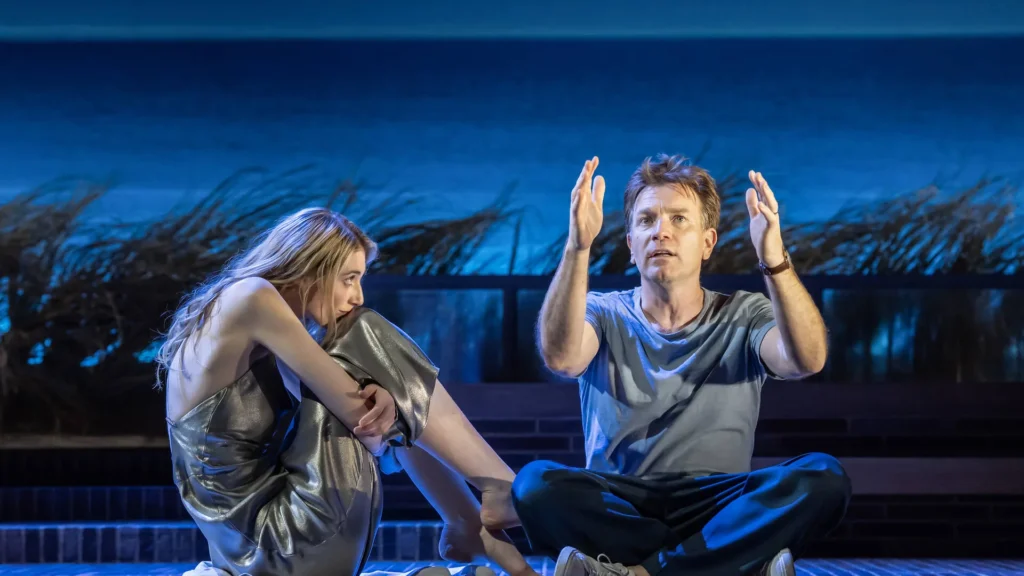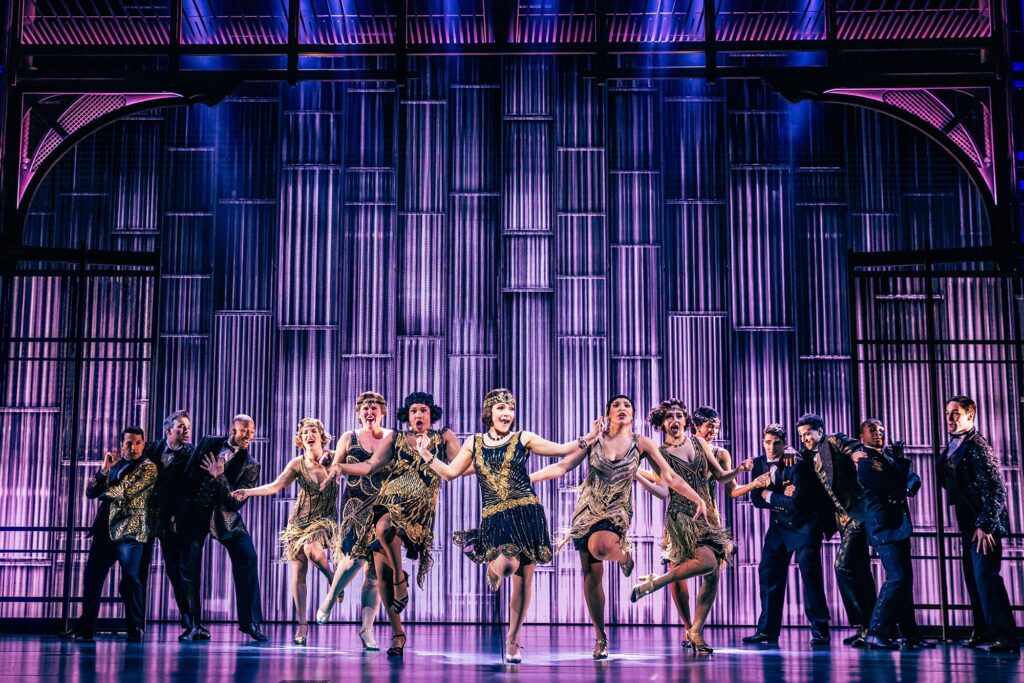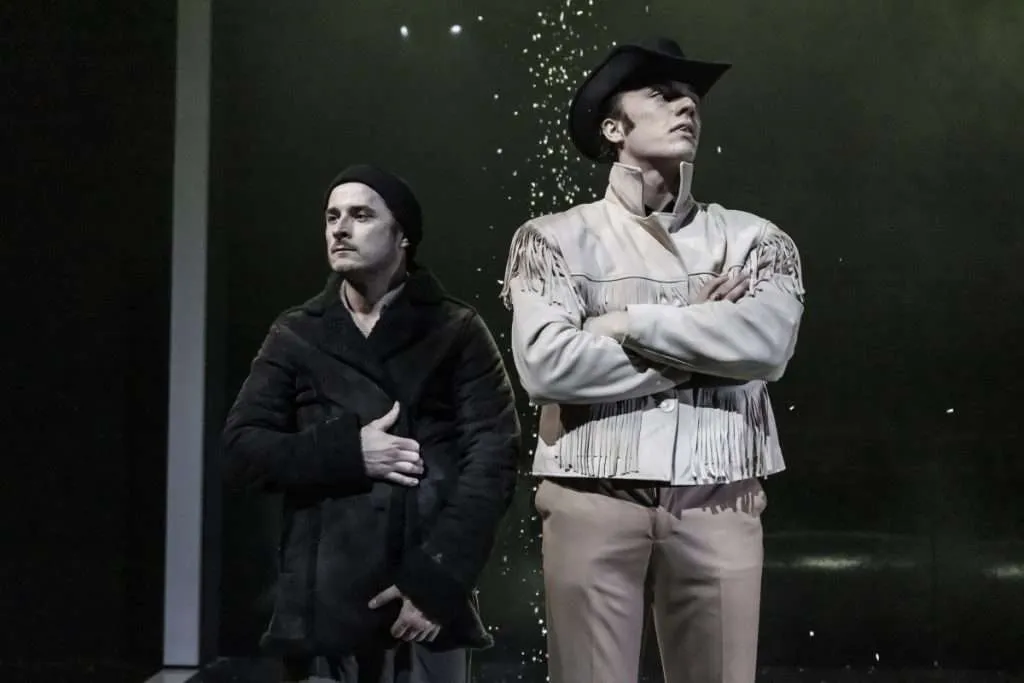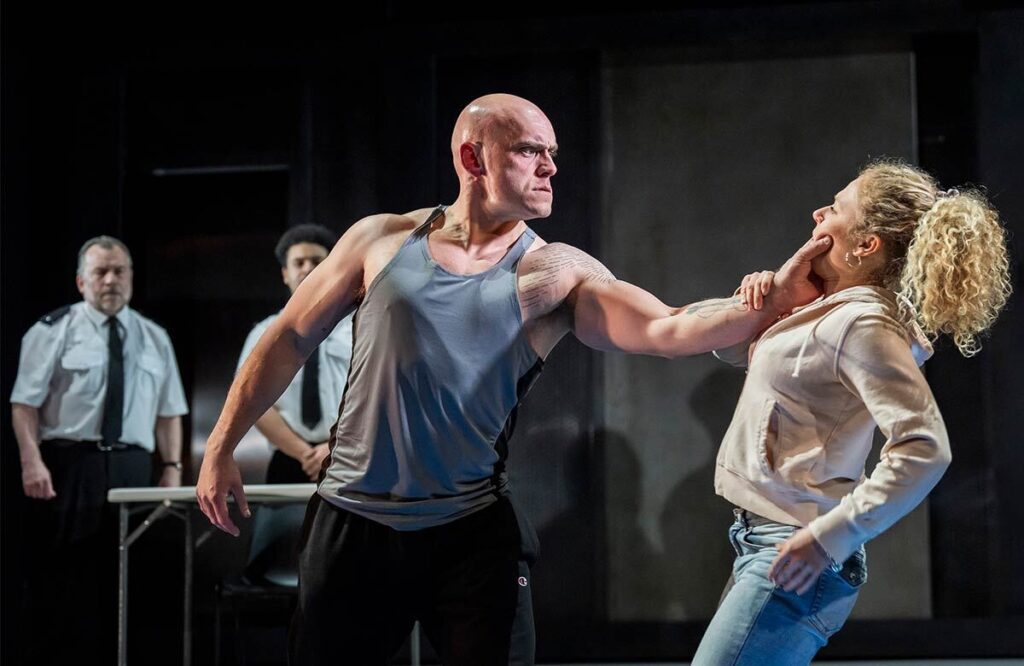Outstanding acting as dreams are crushed
⭑⭑⭑⭑
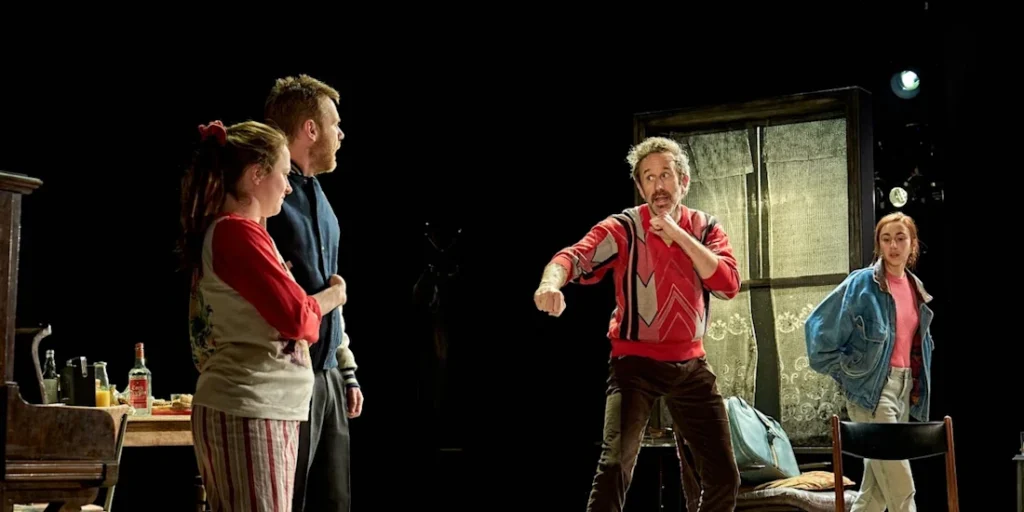
Is The Brightening Air a comedy with a serious message or a drama with humour? Either way, it’s great entertainment showcasing outstanding acting.
If you’re thinking that a mixture of comedy and profundity sounds a bit Chekhovian, you’re right. Indeed, if you’re familiar Chekhov’s Uncle Vanya- and the playwright Conor McPherson certainly is, having directed a memorable production- you may recognise elements of the plot about a dysfunctional family stuck in the past that is forced to confront change by the arrival of a relative.
A mature brother and sister live in a run-down Irish farm in the 80s. Stephen is a failure as a businessman, Billie is unreliable due to what I take to be autism. With them, almost a lodger, is their sister-in-law Lydia, still in love with their long departed brother Dermot.
He is a successful owner of cafes, a business so perfect as a symbol of the rise of individualised consumerism. His arrival at the farm with a much younger girlfriend Freya in tow, sets off a chain of events that blows apart all the characters’ dreams and self delusions.
There is one other significant arrival, back from the outside world as it were. Uncle Pierre, their father’s brother, is a blind priest, relying on Elizabeth, his housekeeper, companion and a little more besides, who needs a man she can control as much as he needs her care.
Billie is gifted with much insight but is not taken seriously because her autism causes her to shout and go off at tangents, like reciting the details of railway timetables. Rosie Sheehy, after her sensational starring role in Machinal, once again shows her greatness as an actor who can inhabit extreme emotions. For all the strong qualities of the other actors, it is her you can’t take your eyes off.
Stephen, played by Brian Gleeson, is depressed, lamenting his failure both at business and love. Also living in the past is Lydia, forever hoping that Dermot will return to her.
Dermot is cringingly sleazy. Chris O’Dowd is on top form as a self-centred alpha male. Not only has he abandoned the family farm to his younger sublings, he has no ability to commit to relationships, and chases after young women. How old is this one? ‘In her twenties, well twenty… next birthday.’
Since it is the 1980s when Ireland, once a backwater on the western edge of Europe is becoming the Celtic tiger, Dermot could be seen as representative of the booming economy and its detrimental effect on a traditional way of life.
Other members of this superb cast are Derbhie Crotty as the scheming passive-aggressive Elizabeth, Aisling Kearns as a wide-eyed Freya and Eimhin Fitzgerald Doherty as the young exploited farmworker Brendan.
The design by Rae Smith occupies every inch of the huge Old Vic stage. Although a shimmering grey curtain appears every so often at the back, the action is entirely downstage in one perfectly realised room of the farmhouse. I think this might signify the vastness of the world surrounding this small community but for me it had an alienating effect. I suspect the play would work even better if it was done in a more intimate set and auditorium.
After the interval, a metaphorical bomb explodes. I won’t spoil the plot but, suffice to say, all the characters’ lives are turned upside down. All three siblings are forced to reassess their situations and Father Pierre has an experience that’s the polar opposite to St Paul on the road to Damascus. In a tremendous monologue he explains God is a psychopath and that he will lead a new religion. His transformation is one of the highlights of this eventful play, although maybe he doesn’t change that much.
Exquisite comic timing

There may be a message here, particularly relevant in a country that was dominated by the Catholic Church until this point in time, that there are always people willing to exploit others’ spiritual needs. Played with exquisite comic timing by Seán McGinley, Pierre’s behaviour to others is both hilarious and chilling. I should say, there are several moments in this play where a character’s needs are shaped or satisfied by their belief in mysticism or magic, including for example whether drinking certain water can make someone fall in love
So the characters’ dreams are crushed. The phrase ‘the brightening air’ is from a poem by WB Yeats and refers to the moment dreams meet reality. Another line from the great Irish poet springs to mind: ‘Things fall apart; the centre cannot hold; Mere anarchy is loosed upon the world’.
The play nears its end with another terrific monologue, this time from Billie, talking about the destructive nature of change, and the need for deep loving relationships. ‘In each other, we saw the face of God’ she says, and points out ‘how much of living is really just forgetting’.
Along with the laughs, there’s a lot to think about in this play, maybe a little too much, but It’s a fine piece of writing and wonderfully acted.
The Brightening Air can be seen at The Old Vic Theatre until 14 June 2025.
Paul was given a review ticket by the theatre
Click her to watch this review on the YouTube channel Theatre reviews With Paul Seven
